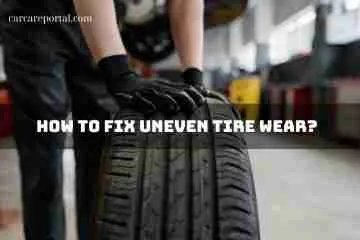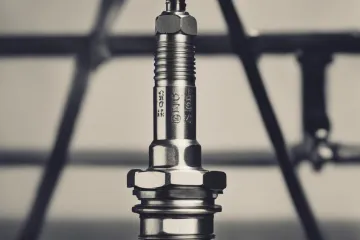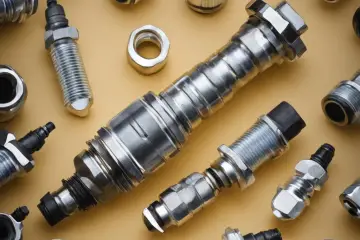Why Do Car Seats Expire? How Does That Affect The Life Of A Car Seat?

Why Do Car Seats Expire? Expired seats are a common problem for car users. They are able to last for a few uses, but after that they usually don’t last very long.
Why Do Car Seats Expire?
1. Wear and tear
Your car seat may be one of the most utilized pieces of baby equipment you possess, second only to the crib. You’re probably buckling and unbuckling your infant each trip to the grocery, daycare, or play date.
You’ll also find yourself adjusting the seat as your child grows, wiping up spills and stains as best you can, and wincing when your teether bites on straps or knocks on cupholders.
If you live in a hot climate, your seat may burn in the sun while your vehicle is parked, causing minor fractures in the plastic that you can’t even see.
All of this wears down the fabric and components of a car seat, so it comes to reason that the seat meant to keep your kid safe would not last indefinitely. And, without a doubt, you want to ensure your child’s safety.
2. Changing regulations and standards
Transportation authorities, professional medical organizations (such as the American Academy of Pediatrics), and car seat manufacturers undertake and evaluate safety and accident testing regularly. This is excellent news for parents worldwide.
Furthermore, technology is constantly developing. (Didn’t we know? Why is our laptop, which is just two years old, already out of date?!) This implies that when new features, materials, or technologies are developed, car seat safety statistics may be improved.
Assume you purchase a rear-facing car seat that will support your kid up to a particular weight, but the weight requirements for a rear-facing seat change. Although it is not required by law to replace your seat, the manufacturer may discontinue it and cease producing new components – not to mention that you no longer have the safest seat possible for your child.
The expiry date may account for these changes, making it less likely that you’ll have a faulty seat.

3. Manufacturer testing has its limits
When a company tests a car seat, whether Graco, Britax, Chicco, or any other car seat brand, they don’t expect you’ll still be stuffing your 17-year-old into it and driving them to their senior prom. As a result, it stands to reason that car seats are not tested to evaluate how they hold up after 17 years of usage.
Even all-in-one car seats, which convert from rear-facing to forward-facing to boosters, have weight or age restrictions, and car seat and booster usage often stop around the age of 12 (depending on the child’s size). As a result, automobile seats are seldom examined beyond 10-12 years of usage.
4. Recalls
In a perfect world, you’d register your car seat immediately so the manufacturer can notify you of any product recalls. In the real world, you’re up to your eyeballs in newborn-related activities, not to mention sleep-deprived. You might be utilizing a (recent and unexpired) hand-me-down car seat without a registration card.
Expiration dates guarantee that even if you miss a recall notification, you’ll have a generally up-to-date car seat that is less likely to have issues.
How Does That Affect The Life Of A Car Seat?
Degrading plastic may impair a vehicle seat’s effectiveness. The shell’s ability to retain the integrity and transmit collision energy to the seat belt or LATCH system may be jeopardized.
For example, in a forward-facing traditional 5-point harness car seat during a forward impact, the restraining forces are initially felt by the harness strap, then passed to the car seat’s shell, then to the seat belt or LATCH and ultimately to the automobile. If the plastic degrades, the shell might shatter during the energy transfer.

Other Reasons For Car Seats Expiring
Aside from the materials deteriorating, requirements may have changed since your car seat was built. An older car seat may no longer be legal if the rules change. Car seats may often be utilized to the end of their useful life. However, if a car seat does not include an expiry date, you may be able to continue using a car seat that is no longer as safe as the current regulations demand.
Even though government regulations have not been changed, car seat manufacturers constantly strive to enhance safety and usability. As a result, modern car seats may be simpler to install and offer better safety performance.
Recalls may have an impact on the usage of a car seat. If a car seat is recalled, the manufacturer will usually inform the registered owner and deliver new components. Very infrequently, a car seat may be judged useless, and the manufacturer will advise you to stop using it and destroy it.
FAQs
1. Are Manufactures Required To Give An Expiration Date?
No. In the United States, no federal rule requires an expiry date for car seats. However, owing to the possibility of regulatory changes over time, the NHTSA does prescribe expiry dates. For example, RideSafer vests did not carry an expiry date for the first almost ten years. In response to the NHTSA’s request, the manufacturer included an expiry date.
Car seat makers choose them depending on the product’s projected useful life. Most car seats have a shelf life of 6 to 7 years from the manufacturing date. It is important to note that this is not the date of purchase; it might have been on the shop shelf for months or longer. RideSafer vests are presently valid for ten years.

2. Where To Find The Expiration Date?
All car seats must have a manufacturer’s date. This is usually on a sticker on the back of the shell. The date is often imprinted on the shell of the car seat.
Some car seat manufacturers include an expiry date on the label as well. Others have a time limit from the date of manufacturing.
Suppose you purchase a used car seat, which we do not suggest, search for the expiry date. It is not a suitable investment if it is beyond or approaching the length of time your kid will need to utilize the seat. (Buying a secondhand seat also carries the risk that it was in a collision that the owner did not disclose, missing pieces, or that certain parts are worn out and in poor shape.)
3. Could I Get Trouble Foe Using An Expired Car Seat?
It all depends. According to the NHTSA, there is no legislation forbidding parents from using an expired car seat, and most states’ laws mention a car seat’s expiry.
However, many jurisdictions’ car seat regulations require a parent to utilize the car seat by the manufacturer’s recommendations. If the car seat has an expiry date and you use it beyond that date, you are not following the manufacturer’s recommendations. That is technically unlawful. However, a police officer will unlikely remove your vehicle seat to verify the manufacturer’s date. Unless it’s an old seat and they’ve been taught to seek for it.
4. Is It Ever Ok To Use An Expired Seat?
This is when best practices and reality may diverge. In other cases, a parent cannot afford a new car seat. Is using an expired seat better than not employing a car seat in this case? Very possible.
Read also: How To Clean Car Seats? Cloth, Leather And Vinyl Car Seats In 2022
5. How long are car seats good for?
Car seats typically have a lifespan of six to eight years from the manufacturing date (not when the seat was purchased). Manufacturers base expiry dates on how long they anticipate their seats to perform safely as planned. Thus the dates may differ from one brand or model to the next.
In conclusion
Car seats are at the top of the list of infant equipment necessities. If you want to travel by car or aircraft with your kid, you will need one, beginning with the first voyage home from the hospital. A car seat, on the other hand, maybe rather costly. It’s tempting to postpone purchasing a new one, but remember that car seats have an expiry date for a reason—they transport valuable cargo, and an older model won’t be as secure for your child.
So, how long do car seats last? Check the expiry date on your model (located beneath the seat or written into the frame), but most manufacturers recommend upgrading your car seat after six years.











No Comment